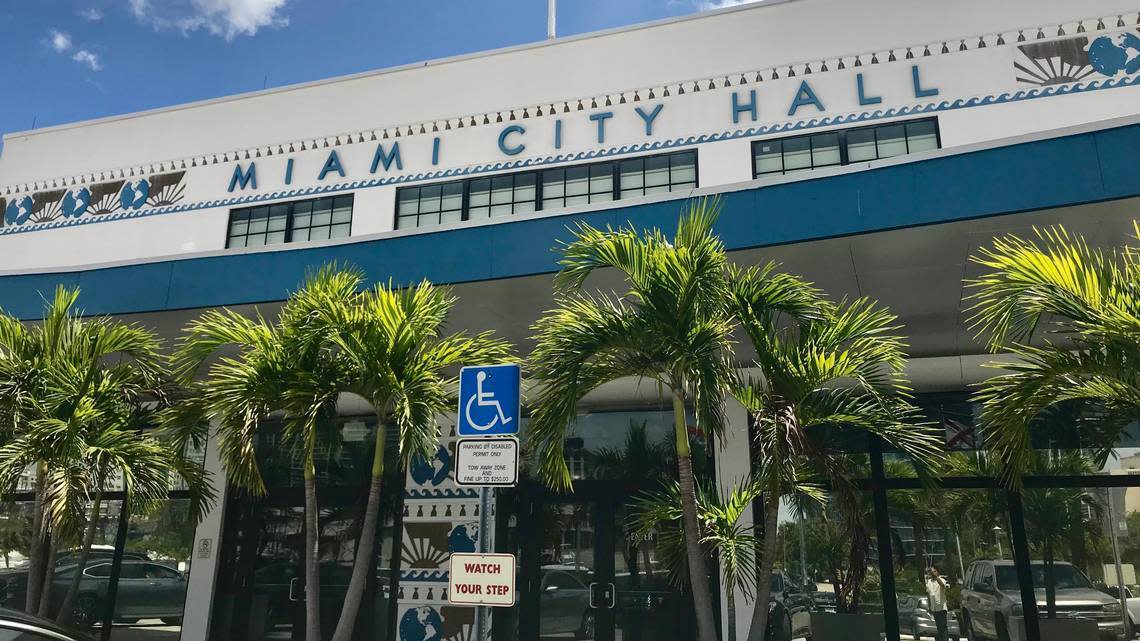Judge to decide if millions of Miami parking surcharge fees to be refunded. City fighting it

Both sides involved in a legal dispute over a substantial parking surcharge the city of Miami has been collecting for two decades asked a judge Wednesday to rule in their favor, long before the trial even began.
The 15 percent parking surcharge at all Miami garages and lots has netted the city tens of millions of dollars since residents voted for it in 2003. But it came with a catch: A state law that pre-empted the referendum only allows cities to supplement revenue with the tax if more than 20 percent of their real property value is tax exempt.
The city says it does. The plaintiffs, three workers in Miami who have paid the surcharge at parking lots in several different Miami neighborhoods, disagree.
The city wants the surcharge to continue. The plaintiffs’ attorneys in the class-action case — who potentially represent thousands of people who could be refunded millions — call the surcharge illegal and say it should be refunded to everyone who has paid to park, city residents or not. The sides were in court requesting that Miami-Dade Circuit Court Judge Thomas J. Rebull award their side summary judgment — essentially render a legal verdict before a trial even begins.
Square footage vs. property value
During a just-over two hour hearing that was awash in confusing contract legalese Wednesday morning, city-hired attorneys Peter Homer and Robert Stein argued that tax-exempt status in the city should be based on square footage, not the value of the property. They explained to the judge that several enormous city parcels, like Virginia Key and Bayfront and Maurice A. Ferré parks, are exempt from the tax rolls. They told the judge there is about $9 billion of property tax exemptions in Miami, which the property appraiser says has $28 billion in taxable property.
Miami’s attorneys also contend that there is no wording in the surcharge statute that forces an end-date to its enforcement. And, Homer argued, once the surcharge is in place, there’s nothing in the statute to suggest the city has to end it, even if certain criteria is no longer met.
“There is no ambiguity here,” Homer said. “The Legislature could have required continued compliance.”
The plaintiffs, led by attorneys Rachel Furst, Alex Arteaga-Gomez and Stuart Grossman, said Miami began violating the 20 percent provision in 2017 when the city’s tax-exempt share of property owned by schools, churches and homesteaded residents fell below the threshold. Since then, construction and property values have exploded and the city’s tax-exempt status has dropped even further. They also argue the city makes up its own standards when it comes to exemptions.
For example, plaintiff attorney Frank Maderal said a home that could sell for $10 million on the open market but is only assessed at $6.5 million by the property appraiser, should be taxed an additional $3.5 million.
“They’ve wrongfully collected a parking surcharge of $18 million to $20 million a year,” Maderal said.
After the hearing, Rebull gave the sides until Jan. 5 to submit proposed orders. Then he is expected to either take a side and forego a trial or set a trial date. Whichever way he rules, the motions are likely to be appealed.
The class-action case was filed by three people who work regularly in Miami and have paid the tax in city neighborhoods that include Brickell, Coconut Grove and Wynwood.
Richard Klugh, Sara Wolfe and Josh Kaiser say Miami has “illegally imposed and collected” the parking tax for years. The suit also notes that Miami is the only eligible large city in the state to levy it. State law says surcharge money can be used to lower a property tax rate as well as for street, sidewalk and other roadway improvements.
Even with a recent $25 million setback stemming from state regulators who said the city’s tax rate was invalid because of a questionable vote, Miami has been on relatively strong financial footing. Pandemic relief funds and stronger-than-expected projections have helped the city lower its tax rate in recent years.
Still, the city has paid its share of legal settlements, mostly from labor disputes and a fight over a major waterfront development. And it has to make up millions in payments for pension cuts to police and fire during the Great Recession.


